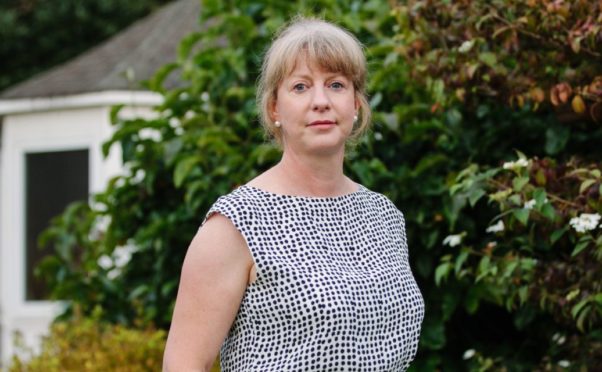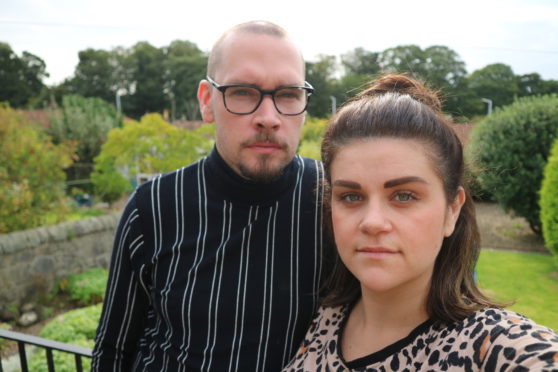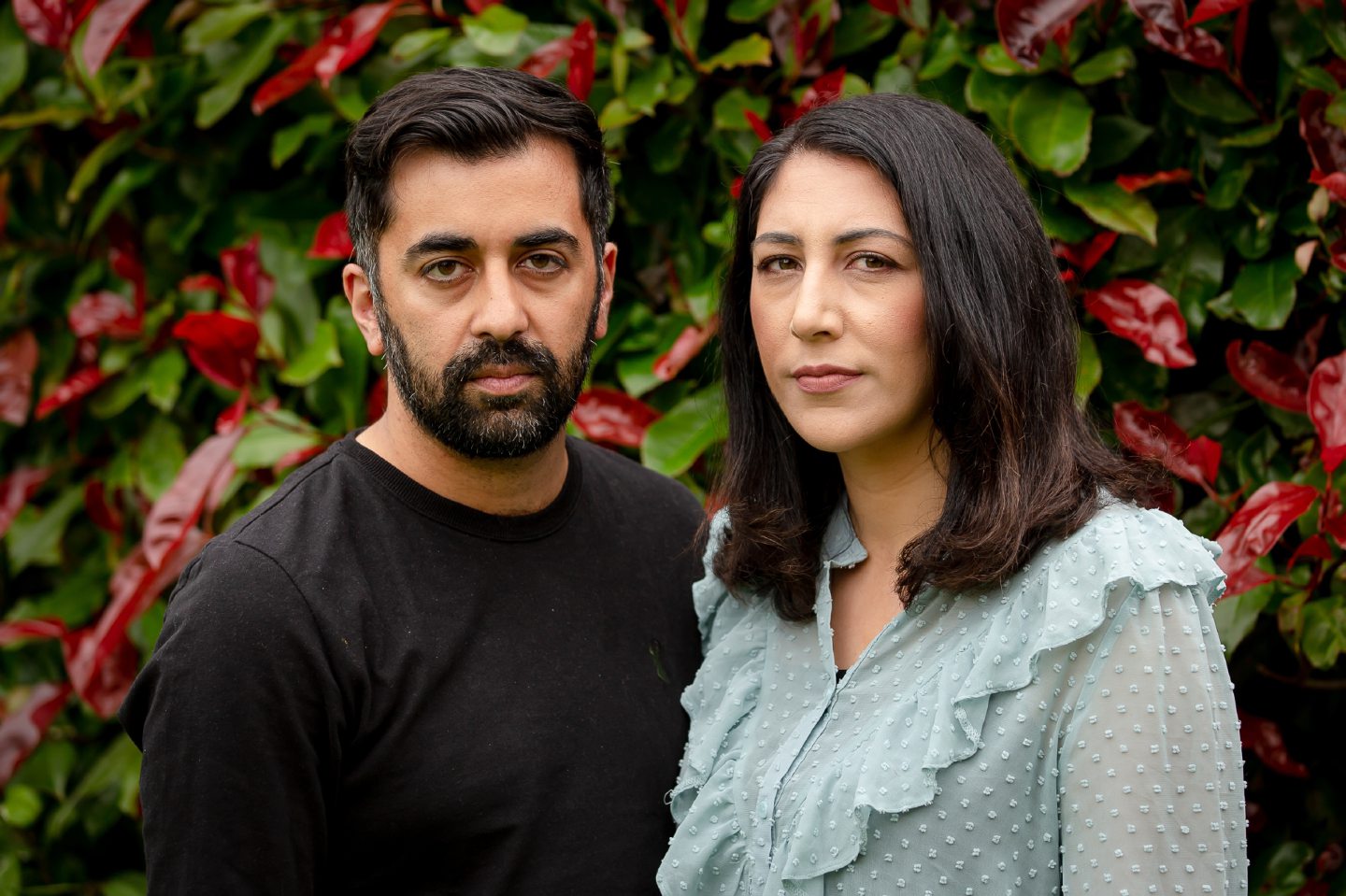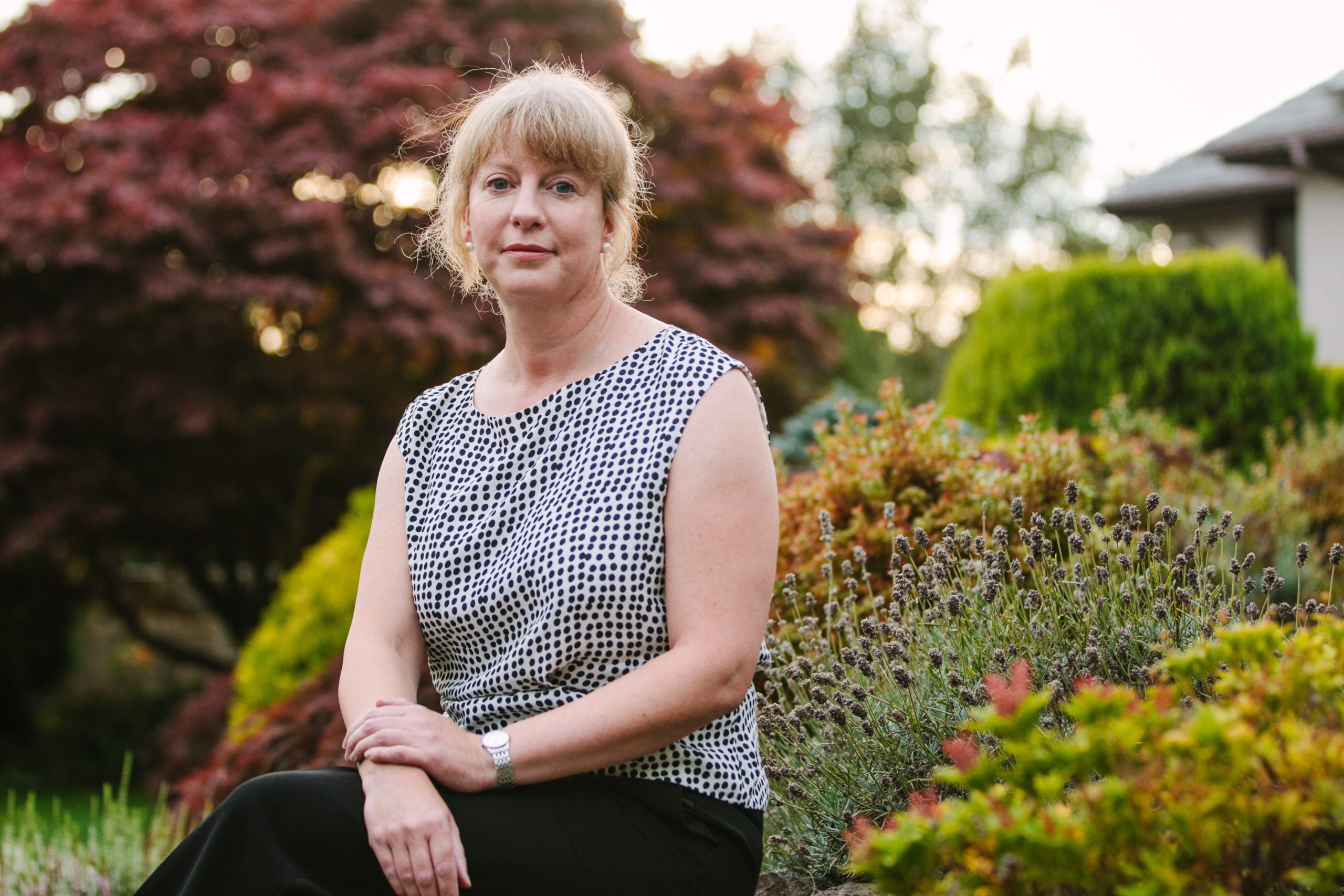
Giving women at risk of miscarriage a hormone boost could help save more than 8,000 babies a year, according to landmark research.
A report expected to be published next month suggests giving progesterone to women experiencing bleeding in early pregnancy and with a history of miscarriage could lead to 8,450 babies being saved in Britain each year.
And prescribing the drug could save the NHS £350 million a year, currently spent on caring for women who have suffered miscarriage.
The study, to be published in respected medical journal The Lancet, is based on research carried out by miscarriage charity Tommy’s and will be published as a new campaign calls for better care and treatment for Scots who have lost a baby or are at risk of miscarriage.
It is hoped the study will encourage changes to the official guidance to doctors, meaning more women at risk of miscarriage will receive progesterone.
Dr Adam Devall, miscarriage researcher at Tommy’s National Centre for Miscarriage Research and Birmingham University Clinical Trials Unit, said: “Miscarriage is a traumatic experience, affecting up to one in four pregnancies. And at the moment, there is nothing that can be recommended as a treatment. There is nothing doctors can offer. Progesterone could be the answer.”
Dr Devall and colleagues conducted the PRISM trial – the largest of its kind – on 4,153 women being treated at 48 hospitals across Britain for bleeding in early pregnancy.
And the results showed that progesterone – which is naturally secreted by the ovaries and placenta in early pregnancy and helps provide the right conditions for a fertilised embryo to implant in the womb – was successful in saving the babies in women who had experienced miscarriage before.
“There was no evidence that progesterone could help all women, but for women with one or more previous miscarriages, the live birth rate was 7% higher. But the greatest improvement was found in the group with three or more previous pregnancies, which showed a 15% increase in live birth,” Dr Devall said.
Researchers also found the pessary treatment, costing £204 per pregnancy, could be the most cost effective option for the NHS. “This outweighs the cost of management of miscarriage,” Dr Devall said. “These women are very eager to have children so if they miscarry, it is quite unlikely they will decide they can’t go through it again. The likelihood is they will try again.
“Miscarriage is hugely devastating not just for the pregnant woman but for her partner as well. The mental health consequences are huge. Research shows women suffering miscarriage have symptoms similar to PTSD.
“And there are potential clinical consequences. Some miscarriages are treated by letting nature run its course, but others have issues and need treatment – and these aren’t risk free.”
Tracy Roberts, professor of economics at Birmingham University, said: “Miscarriage is a significant economic burden, costing the UK’s NHS around £350m per year for the management of miscarriage and complications.
“Given the distress to women and families associated with miscarriage, and the subsequent resources that might be associated with counselling and close antenatal attention in the subsequent pregnancies of women who experience miscarriage, progesterone is likely to be considered good value for money in preventing miscarriage.”
Researchers are now calling for progesterone to be offered as standard in the NHS for women with early pregnancy bleeding and a history of miscarriage.
They have submitted the case to the National Institute for Heath and Care Excellence (Nice) for review in the hope guidelines to clinicians will change, advising prescribing progesterone to these women for the first 16 weeks of pregnancy to give babies a higher chance of survival. Tommy’s chief executive Jane Brewin said: “Our PRISM trial results are important for parents who have experienced miscarriage – they now have a robust and effective treatment option that will save many lives and prevent much heartache.
“It gives us confidence to believe that further research will yield more treatments and ultimately make many more miscarriages preventable.”
And Tommy’s National Centre for Miscarriage Research director, professor Arri Coomarasamy, added: “Our PRISM trial has huge implications for practice. Progesterone treatment could save thousands of babies who may have otherwise been lost.”
Nice confirmed it was currently in the early stages of reviewing guidelines on the diagnosis and initial management of ectopic pregnancy and miscarriage, prompted by the new research.
In Scotland, the Scottish Intercollegiate Guidelines Network (Sign) said: “Nice guidance on medicines has no formal status in Scotland. But clinicians and NHS boards are able to look at evidence from Nice and other bodies in order to help them inform their decision making, especially where there is no formal guidance for Scotland.”
Nadia El-Nakla, who helped launch the campaign to improve care in Scotland in The Sunday Post last week, has experienced five miscarriages and believes progesterone was key to her successful pregnancy.
“As a pregnant woman, I don’t care about the stats,” she said. “I don’t even care if there’s a 0.0001% chance something might help. If there is anything that can save my baby, I feel it should be offered.”
After three previous miscarriages, when Nadia, who is married to Justice Secretary Humza Yousaf, started bleeding at six weeks, she was seen by a consultant and put on the hormone progesterone, which stopped the bleeding and the pregnancy continued normally until their baby daughter Amal’s birth.
“In my pregnancy with Amal, I was treated with progesterone from six to 18 weeks and she arrived safely in my arms. I know if I didn’t have progesterone, she wouldn’t be here. I only knew about it because I had done my research and seen that it was used for miscarriage in other countries. I would have bought it if I could.
“I only hope it can be offered to other women in the UK. It really can make the difference for women with threatened miscarriage.
“It certainly did for us.”
It’s very touching that so many women have offered support
Shona Robison, Former Health Secretary
A digital summit on Friday brought together a team of campaigners calling for better miscarriage care in Scotland.
Former health secretary Shona Robison told The Sunday Post last week of how her own experience with miscarriage had encouraged her to help launch the campaign to ensure best practice is adopted across NHS Scotland.
She was among the politicians, doctors, charities and women who have endured miscarriage and met online for the first discussions about how to take the Changing Miscarriage Care campaign forward.
Dundee East MSP Shona had a miscarriage in 2007. And after discovering one of her own staff, Nadia El-Nakla, had experienced multiple miscarriage, the pair joined forces to launch Changing Miscarriage Care to call for best practice in care and treatment to be adopted across NHS Scotland and to help raise awareness of the physical and emotional toll of miscarriage.
The Zoom meeting saw 27 of the country’s leading doctors, clinicians, politicians, charities and women who have experienced miscarriage join forces.
Some of the issues raised were improvement in post-miscarriage treatment, care and counselling for women, the need for more bereavement midwives, and better counselling for men also affected.
Scottish Labour’s Monica Lennon MSP said: “More must be done to provide access to high-quality and specialist support and to end the postcode lottery that is letting too many women down.
“Miscarriage prevention needs to be higher on the agenda, including the role that progesterone can play in reducing risk.”
Ms Robison said the campaign had been met with a positive response.
“I have been totally overwhelmed by the number of people getting in touch to share their experiences,” she said. “It has been extremely touching that there are so many women out there affected by this who want to support the campaign.
“It feels like we are pushing at an open door and that’s good.”
Jane Brewin, CEO of Tommy’s charity, added: “Until recently, miscarriage was viewed as quite a trivial thing. Women didn’t talk about it and perhaps there was a thought that they just dusted themselves down and got on with it.
“Doctors thought there wasn’t anything we could do to prevent it, but with increasing knowledge and speed of discovery, it has now been realised that care can be improved.”

Enjoy the convenience of having The Sunday Post delivered as a digital ePaper straight to your smartphone, tablet or computer.
Subscribe for only £5.49 a month and enjoy all the benefits of the printed paper as a digital replica.
Subscribe


 © Anna Moffat
© Anna Moffat © Andrew Cawley
© Andrew Cawley